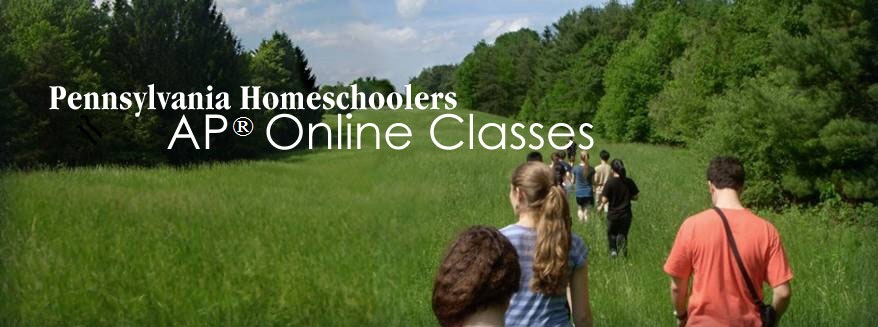
Online for the 2025-2026 School Year
Teacher: Terrianne Lavin
Email: talavin0@gmail.com
Updated June 2025 - by Terrianne Lavin, Ph.D.
AP® Environmental Science
Registration: Open for 2025-2026.
Instructor Information:
I currently am the Associate Chair in the Geography and Spatial Science Department at the University of Delaware where I have taught since 2006. During the pandemic, I briefly left UD to teach for 2.5 years at the University of Kansas. While I love KU, I am happy to be back at UD.
I have a Ph.D. in Climatology, an MS in Geography (both from the University of Delaware), and a BS in Meteorology from the University of Kansas. I have more than 26 years of experience developing and teaching climatology, physical geography, and environmental science courses at three institutions: University of Kansas (KU), University of Delaware (UD), and Florida Atlantic University (FAU).
In addition, I have enjoyed many years of homeschooling by teaching both my own two children and many of their homeschooled friends.
Through APES, I look forward to bringing science and leadership by mentoring, advising, and teaching environmental science, with equity and inclusion, to a diverse homeschool population. I create space for my students to explore environmental science, sustainability, and policy concepts in-depth while encouraging independent and respectful discourse. I always seek new ways to educate by creating new courses and exploring innovative teaching methods including video and online courses.
Course Information and Pedagogy:
My basic idea is for all to learn the subject matter to a mastery level, and that everyone's achievement of mastery will occur at their own pace. Specifically, this results in a three-fold practice:
- students may master and move forward - if they master quickly, there is no need to continuously repeat a mastered skill.
- students are never penalized for late work (life happens). To this end, parents are responsible for reviewing their students' work and timeliness, to ensure they do not fall behind. I do not police students falling behind; I do require parents to take on this responsibility (see Parent/Student Requirement).
- there is a weekly, live session throughout the 2 semesters where I work with students on comprehension, understanding, test skills, and current environmental issues. These sessions are recorded and uploaded to a private, shared with the class, Google Drive.
- Each week students are asked to read, complete a series of interactive quizzes, and complete a chapter "test" from the textbook Environmental Science and Sustainability, Sherman and Montgomery, Ed. 2, 2022 published by WW Norton.
- Live classes will meet weekly for 1 to 1.5 hours (TBD) and may be attended in person or reviewed via an online recording. Students are strongly encouraged to attend the live classes.
During weekly live/recorded sessions, we have impromptu labs and real-life decision-making, and we do timed FRQs followed by interactive, self-grading including explanations of how they would have gained or lost points. These are not formally scored but work to teach the students how the college board will score them.
- All assignments are assigned by weekly modules that will open when the student achieves a certain mastery of the prior material.
- In addition, there are College Board Quizzes and Unit Tests. College Board content cannot be repeated.
- We spend the last 3 to 4 weeks before the AP Exam reviewing for the exam.
Technical Requirements:
- Computer, internet access, e-mail, and Zoom capability
- Scanner or digital camera
- The class will be housed in Canvas
Who Should Apply:
The course is open to students in 10th through 12th grades. All students should be prepared for a college-level course and be ready to commit at least 8 hours a week to this course. Completion of high school level Biology, Chemistry, and Algebra I are highly encouraged before taking AP Environmental Science.
Course Schedule: Week of August 25, 2025 til Exam in May 2026
Course fees:
- early bird, til July 1st, $750, after $850 for 2 semesters
- Approximately $70.00 -Text and online material
- Approximately $100-Lab materials (mostly common household items available for purchase at local stores)
Class Description:
The primary units, as tested by the AP® College Board, will be covered. Assignments will be online and consist of reading, writing, multiple choice, and short problems. Each section may include an online or documented lab.
Unit quizzes will be given in order for students to assess their understanding prior to the unit tests. Unit tests will be given in a similar style to the AP® exam. Students will work at their own pace and schedule to meet unit deadlines.
Topics (a minimum of 2 weeks per topic)
Unit 1: The Living World: Ecosystems
Unit 2: The Living World: Biodiversity
Unit 3: Populations
Unit 4: Earth Systems and Resources
Unit 5: Land and Water Use
Unit 6: Energy Resources and Consumption
Unit 7: Atmospheric Pollution
Unit 8: Aquatic and Terrestrial Pollution
Unit 9: Global Change
Unit 10: practice exams
